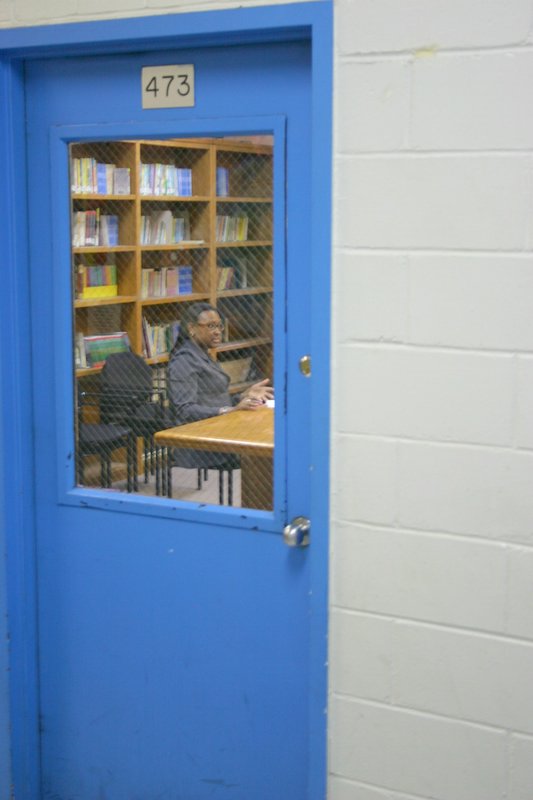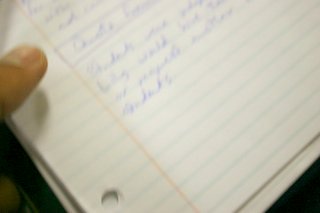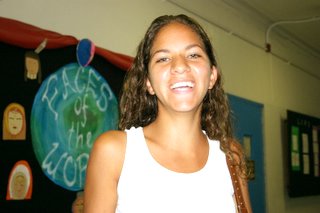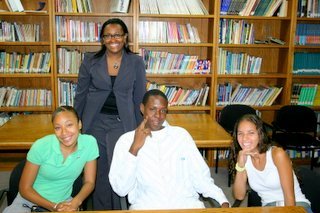SCENE: A Boys and Girls Harbor hallway on a late August afternoon, muggy, and overcast.
Peeking through the door of room 473, passing Harbor students inquired about "the woman in the pretty suit."
Meanwhile, sitting on the opposite side of the table inside 473, three FW participants donned alter egos one after another and talked about their experiences as a Purple-Heart Marine, a preschool principal, and a former GamePro graphic designer.
Quietly in the corner, a digital camera hummed along, as if to second that this week at First Work was not just business-as-usual.
____________________________________________________
Project Background
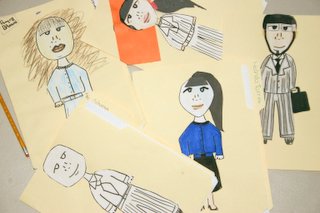
In July, participants at First Work began a workshop series that asked them to consider what it is that makes a good job interview candidate good and put it all down on paper—everything from fictional stories of their character in action to illustrated pictures of their imaginary person.
In the initial stages of developing their characters, participants were asked to consider such things as: What kinds of music do their characters like? What kinds of movies do they watch? What sorts of accomplishments, education, and experience have gone into making these characters the best interviewees possible?
The discussions generated by the month and a half of subsequent character development sparked interesting intrigues into the relationship between one's personal life, demographics, and job marketability. Participants questioned if/how race, personal hobbies, and even one's ability to make difficult, extemporaneous choices affect one's apparent suitability for a position, and how one can present oneself in the best possible light at an interview.
The purpose of the July-August character development activities was to set up FW participants for the August Mock Interviews, in which participants would be asked to role play their characters, whose education, experience, and circumstantial were necessary for successful consideration for a position of the participant's choosing.
In this, the overarching aim of the Summer Mock Interviews was to promote and allow the students to demonstrate their understanding of the interpersonal and presentational skills necessary to convince an interviewer that one is the best candidate for a given position, and not to focus on any lack of experience or education that could impede one's chances for the position.
"I thought the project today was good," said Caryl as he rounded out his first full week in the program. "It helped me get a better sense of how I interview. I haven't been on that many interviews, so it'll help me do better on [them]."
